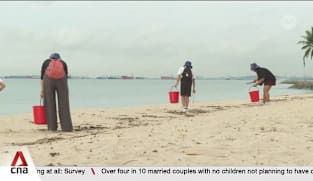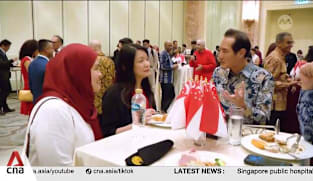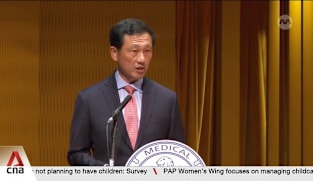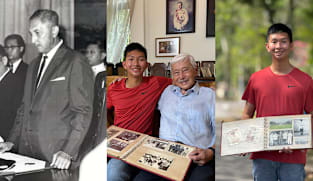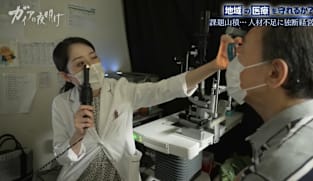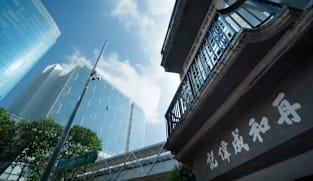Adjournment motion on making Parliament a ‘fairer arena for all’
The Government can definitely do more to make Parliament a “fairer arena for all”, said NCMP Leong Mun Wai. In his adjournment motion in Parliament on Monday (May 8), he asked for better support for MPs in carrying out their legislative duties. One way is to set up a Parliamentary research department with a starting annual budget of S$1 million. He pointed out that many MPs did not come from a public policy or legal background and might require more assistance. Another way is to increase the allowance of MPs so that they can hire legislative assistants and secretarial assistants. This should be extended to NCMPs and NMPs, he added. Mr Leong said it is timely for the Government to review this. He also stressed the need to strengthen the role of the opposition in the Parliamentary system. There should be an “opposition hour” during the first day of every Parliamentary sitting to discuss subjects chosen by the opposition, he said. The Public Accounts Committee (PAC) and Public Petitions Committee (PPC) should be chaired by an opposition MP. “If this is to be a first-class Parliament that works amicably and constructively for the good of Singapore, it must be a fair arena for all,” he said. Responding, Leader of the House Indranee Rajah said it was indisputable that the workload of NCMPs was less than that of elected MPs, adding that they were also not responsible for constituencies or residents' matters. In principle, it is reasonable to differentiate between the support the elected MPs and NCMPs received, she said. As for the quantum of the allowances for hiring legislative and secretarial assistants, she said this was the same for elected MPs, whether they are from the ruling People’s Action Party (PAP) or opposition parties. Turning to the call to set up a Parliamentary research department, Ms Indranee said that many PAP MPs without public policy or legal background have been able to work within the allowances allocated to them, by pooling funds to hire full-time staff to support two or more MPs. She pointed out that the absence of such research facilities has not, in any way, deterred Progress Singapore Party from asserting its ability to advance policy positions. On Mr Leong’s call for an “opposition hour”, Ms Indranee said there was no need for this when every sitting was an opportunity for PAP or opposition MPs alike to raise topics of their choice and to "hold the Government to account, challenge policies and decisions and propose alternative policies”. Ms Indranee also questioned whether having an opposition MP would really ensure that the PAC and PPC are independent, impartial, objective and non-partisan. She said the composition of each Standing Select Committee should reflect the balance between the Government benches and the opposition benches in Parliament. Ms Indranee reiterated that current rules afford “more than enough opportunity” for MPs on both sides to hold the Government to account, raise queries and debate matters. “The answer lies not in changing the rules, but rather for MPs to develop the skills of listening, using the existing rules more effectively to make a contribution to the debate and show that they are deserving of the trust that voters place in them,” she said.
The Government can definitely do more to make Parliament a “fairer arena for all”, said NCMP Leong Mun Wai. In his adjournment motion in Parliament on Monday (May 8), he asked for better support for MPs in carrying out their legislative duties. One way is to set up a Parliamentary research department with a starting annual budget of S$1 million. He pointed out that many MPs did not come from a public policy or legal background and might require more assistance. Another way is to increase the allowance of MPs so that they can hire legislative assistants and secretarial assistants. This should be extended to NCMPs and NMPs, he added. Mr Leong said it is timely for the Government to review this. He also stressed the need to strengthen the role of the opposition in the Parliamentary system. There should be an “opposition hour” during the first day of every Parliamentary sitting to discuss subjects chosen by the opposition, he said. The Public Accounts Committee (PAC) and Public Petitions Committee (PPC) should be chaired by an opposition MP. “If this is to be a first-class Parliament that works amicably and constructively for the good of Singapore, it must be a fair arena for all,” he said. Responding, Leader of the House Indranee Rajah said it was indisputable that the workload of NCMPs was less than that of elected MPs, adding that they were also not responsible for constituencies or residents' matters. In principle, it is reasonable to differentiate between the support the elected MPs and NCMPs received, she said. As for the quantum of the allowances for hiring legislative and secretarial assistants, she said this was the same for elected MPs, whether they are from the ruling People’s Action Party (PAP) or opposition parties. Turning to the call to set up a Parliamentary research department, Ms Indranee said that many PAP MPs without public policy or legal background have been able to work within the allowances allocated to them, by pooling funds to hire full-time staff to support two or more MPs. She pointed out that the absence of such research facilities has not, in any way, deterred Progress Singapore Party from asserting its ability to advance policy positions. On Mr Leong’s call for an “opposition hour”, Ms Indranee said there was no need for this when every sitting was an opportunity for PAP or opposition MPs alike to raise topics of their choice and to "hold the Government to account, challenge policies and decisions and propose alternative policies”. Ms Indranee also questioned whether having an opposition MP would really ensure that the PAC and PPC are independent, impartial, objective and non-partisan. She said the composition of each Standing Select Committee should reflect the balance between the Government benches and the opposition benches in Parliament. Ms Indranee reiterated that current rules afford “more than enough opportunity” for MPs on both sides to hold the Government to account, raise queries and debate matters. “The answer lies not in changing the rules, but rather for MPs to develop the skills of listening, using the existing rules more effectively to make a contribution to the debate and show that they are deserving of the trust that voters place in them,” she said.








